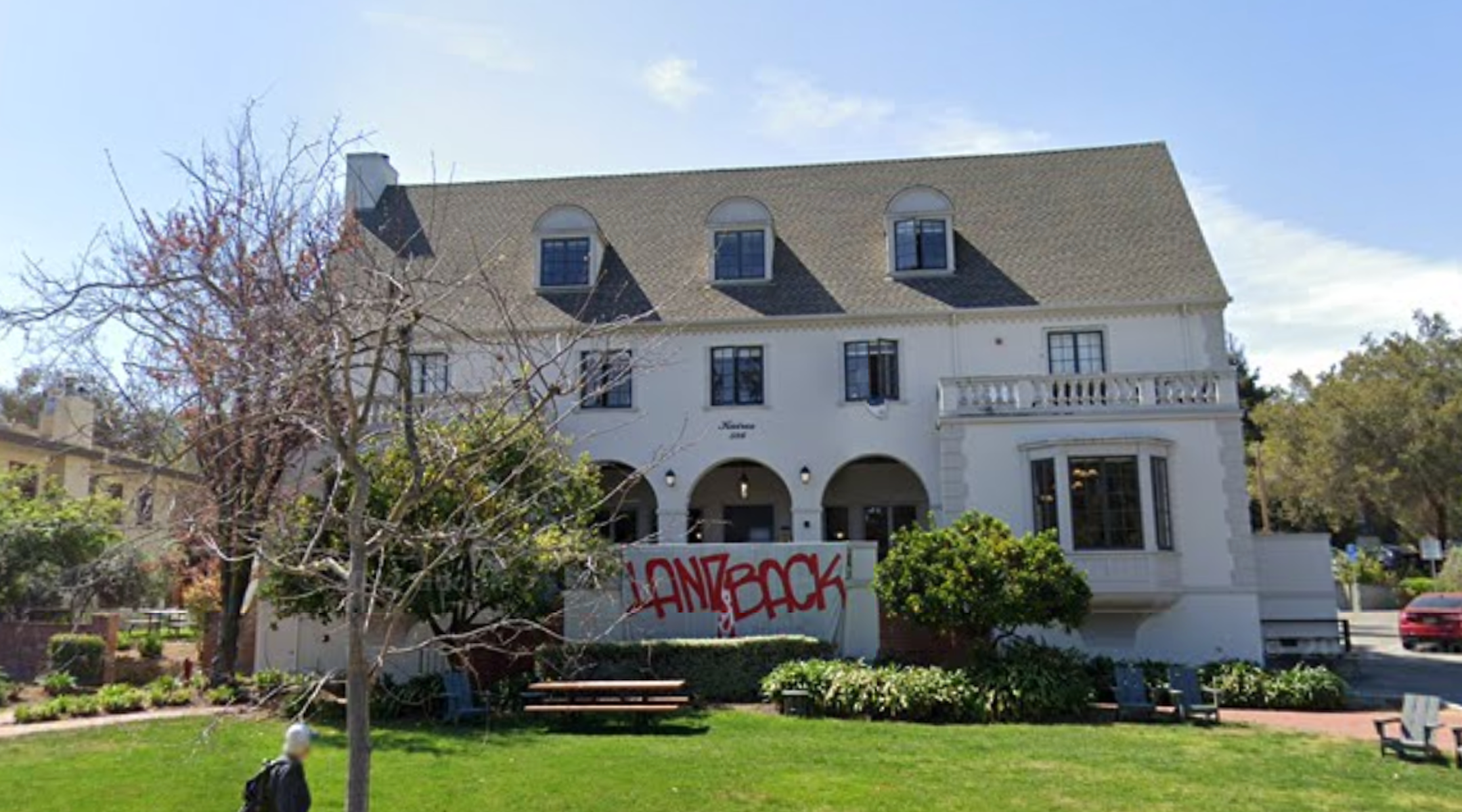Stanford University has suspended a student “co-op house” on its campus for discriminating against Jewish students by labeling them as “Zionists” and requesting that they leave the house.
The investigation into the co-op house, called Kairos, began last spring after multiple reports were filed alleging that Jewish students participating in an unnamed extracurricular activity were “asked to leave the house and told that, among other things, the presence of ‘Zionists’ in the group was making residents of the house uncomfortable,” Stanford said in a statement.
Following an investigation, the school’s Title VI office found that the unnamed extracurricular project had “nothing to do with the Middle East and that none of the students present had shared their political beliefs,” according to the school.
As a result, the school found that the students involved were “targeted based on their perceived Jewish identity” — a pattern that Jewish students have reported on campuses across the country during the Israel-Hamas war in Gaza that has triggered widespread protests against Israel.
“It is simply not acceptable that Jewish students would be excluded from a university space, or asked to explain their political beliefs to remain in that space,” Stanford’s statement said.
The suspension serves as an “important signal to the whole campus that everyone at Stanford belongs, and discrimination won’t be tolerated,” Jessica Oleon Kirschner, the executive director and senior rabbi of Hillel at Stanford, said in a statement.
“While it is distressing that any students would act in discriminatory ways towards each other, we are reassured that the university has acted swiftly and decisively to protect Jewish students,” she said.
The now-suspended co-op house, which was established in 1988, is one of several other Stanford-owned and student-managed residences on the campus, many of which host programming that is open to non-members. Prior to the suspension, the theme of Kairos was “BIPOC solidarity and/or arts appreciation,” according to the Stanford website.
It has hosted events for the campus chapter of Students for Justice in Palestine, according to posts on Instagram, and last year required those applying to join to commit to several values, including advocating for a “Free Palestine” and the “Landback” movement to restore land to Indigenous peoples.
The suspension follows a separate series of complaints filed against the co-op during the previous school year about “students being required to make disparaging statements about Israel before being allowed to enter a party at the house,” according to the statement.
The school said that while steps had been taken to address the complaints against the house that year, in light of the severity of the recent incident of antisemitic discrimination, “the university has determined that stronger remedial steps are now needed.”
The co-op will now operate under university management and oversight during the suspension period, which will last at least a year, according to the university.
Last April, Stanford received a bump in its antisemitism “grade” by the Anti-Defamation League, rising from a D-grade to a C-grade, although the organization still has a “high” risk of “campus conduct and climate concerns,” according to the ADL’s website.
Stanford was on a list of 60 colleges and universities that the Trump administration warned in March could face potential “enforcement actions” because of their records on antisemitism. But so far the elite university has evaded the kind of targeting that the administration has directed toward some of its East Coast counterparts. Still, the school announced last month that it expects to make sweeping layoffs because of Trump’s cuts to research funding.
JTA has documented Jewish history in real-time for over a century. Keep our journalism strong by joining us in supporting independent, award-winning reporting.






